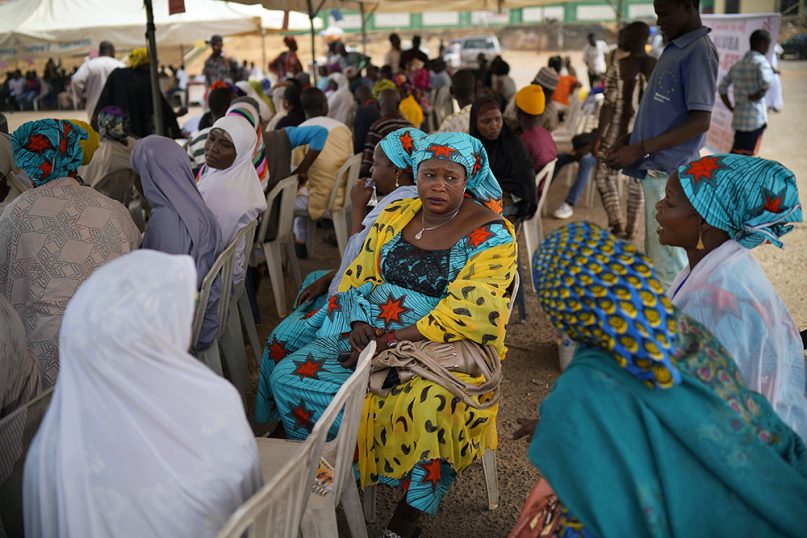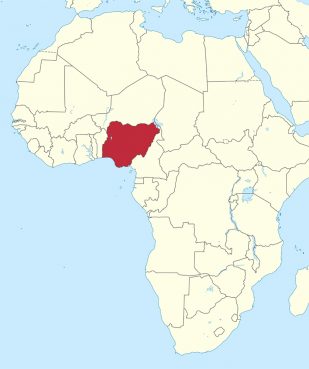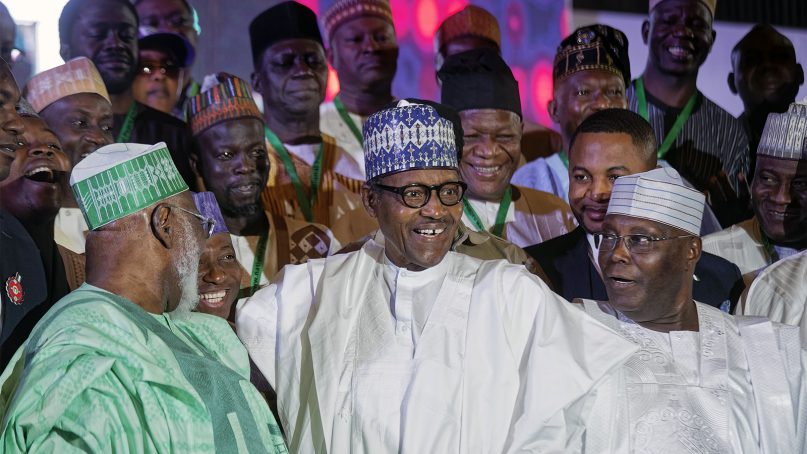(RNS) — As elections draw near in the West African nation, thousands of worshipers continue to gather at mosques and churches to pray for peace, unity and stability.
Africa’s most populous nation now needs exactly that prayer.
Saturday’s presidential elections (Feb. 16) will be the country’s sixth since 1999, when it embraced democracy after a long era of military rule. However, past elections have been marred by acts of violence and vote rigging.
It has been embroiled in a decade of war with one of the world’s most notorious rebel groups — Boko Haram. Clashes between farmers and herdsmen — groups divided by “religion, ethnicity, and culture,” according to the BBC — have resulted in hundreds of deaths.
The country is also facing a tough time in the fight against corruption.
Leaders across all religions are praying for a peaceful vote and urging Nigerians to choose good leaders to solve the country’s economic woes and insecurity.
“I want to urge Nigerians to use their conscience to vote in good leaders who are going to work and solve their problems,” said Archbishop Adewale Martins of the Catholic Archdiocese of Lagos. “But as a church, we continue to pray for peaceful and credible elections. We need peace in our beloved country before, during and after the polls.”
Muslim leaders, who have been fasting across the country, pleaded with Allah to provide peace and security before, during and after the general election.

Nigerian women attend an inter-faith prayer rally organized by the Freedom and Justice Party in Abuja, Nigeria, on Feb. 14, 2019. Incumbent President Muhammadu Buhari is to face opposition presidential candidate Atiku Abubakar on Saturday, Feb. 16, in Nigeria’s general election. (AP Photo/Jerome Delay)
“We have been fasting and praying as a Muslim community to beg Allah to grant us peace and security and make everything go smoothly come election day,” said Sheikh Alhaji Akinola. “We want good leaders, and it’s only Allah who can give (them to) us.”
Nigeria has a population of nearly 190 million. About half of the population is Muslim and half Christian, according to projections from the Pew Research Center. About 2 percent follow other religions or are unaffiliated.
On Feb. 16, more than 84 million eligible voters will be able to cast their ballot to elect the next president and members of the National Assembly. On March 2, another election will be held to elect governors and members of the state Houses of Assembly.
The presidential election has attracted more than 70 candidates.

Nigeria, in red, in Western Africa. Image courtesy Creative Commons
However, the main contest is between incumbent President Muhammadu Buhari, 76, of the ruling All Progressives Congress, and former Vice President Atiku Abubakar, 72, of the People’s Democratic Party.
Abubakar has promised voters to revive the economy of the country and create jobs for younger Nigerians, while Buhari is banking on his achievements to win an election observers say will be highly contested.
Although both leaders are Fulani Muslims from the north, their supporters are divided along religious lines.
Abubakar enjoys massive support from Christians after he recently reconciled with his former boss, ex-President Olusegun Obasanjo, a Christian. Many Christians believe that Atiku has their best interests at heart, they said, adding that other seats are being campaigned along purely religious lines.
“Right now the campaigns are not issues-based,” said Sheikh Ahmad Fahim, a lecturer at Bayero University in Kano in Northwest Nigeria. “Campaigners of the candidates are both attending mosques or churches and urging their supporters to vote for their own presidential candidate. (The majority) of Christians are likely to vote for the opposition candidate because they believe he is their own, though he is a Muslim.”
However, Fahim warned that the campaign was not healthy for democracy in a country that continues to experience violence every election year.
“The campaign is not healthy at all, and it will promote hatred between Islam and Christianity. Our leaders should stop inciting their supporters during campaigns. We want a united nation,” he said.
The Catholic Bishops Conference of Nigeria has urged Catholic priests and faithful to stop engaging in partisan politics and aligning themselves with certain political parties. The church should not belong to any political party, it said.
“As the Catholic Church in Nigeria, we have decided to remain apolitical and do not support or subscribe to any political party in the country,” Father Ralph Madu, who is also the secretary general, Catholic Secretariat of Nigeria, said on the phone from Abuja. “We have committed all our time to pray for a peaceful election and for the elections to be free and fair. We want our country to be united.”





